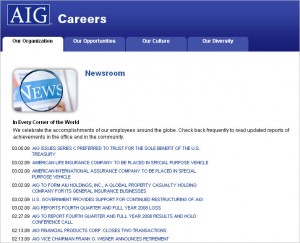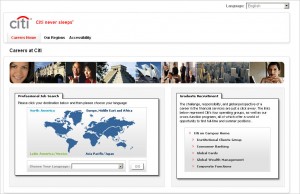Possibly the most mind-swirling statement I’ve seen lately:
“While on a tour of Google’s campus in Mountain View, California, Parsons [executive director of the Army Contractor Command] quickly saw that the company’s culture is quite different from the Defense Department’s.”
Different. Yes . . . that seems believable.
But beyond the fractured reality of this understatement is the matter of why the Army’s hirer-in-chief was at the Google campus, observing what is possibly the world’s most unmilitary workplace. According to the Defense Systems article “Recruiting technology goes cutting edge,” Parsons and some two-star generals who joined him on the tour marveled over Picasa and got acquainted with cloud computing—all as fact-finding for the Army’s new mission to update the way it goes about obtaining workers, from contractors to front-line soldiers.
The armed services in general are faced with significant recruiting challenges. In their case, “passive candidates” are not just the people who aren’t currently looking for a job, they are also people who wouldn’t typically consider enlisting in order to get one. And to woo these reluctants, it’s necessary to create a non-threatening presentation environment. So . . .
Enter the Army Experience Center, a 14,500-square-foot, arcade-like facility located in a Philadelphia mall, where:
A key principle of the Experience Center is soft sell. In fact, almost no sell at all. Recruitment officers wear Army polo shirts instead of uniforms, and are cautioned not to talk about enlistment unless asked. Observes Major Larry Dillard, director of the Center: “We know from our research that young people don’t trust authority figures, and they’re used to informing themselves.”
In other words, candidates want to interact with plenty of information sources before interacting with an actual person—a person who is likely, after all, to have a somewhat biased viewpoint. So the Experience Center attracts visitors (many of whom return several times) with engaging activities. In order to play the games, visitors must register by providing contact information and school status.
In short, it seems the Army is taking a few pages from the civilian playbook. But many companies also have something to learn from the Army approach: Provide candidates with an information-rich, interactive environment, where they can educate themselves about the company. Then give them a way to contact real people once they are ready to find out more.
This is not news, but it’s also not a lesson that has been well-learned by corporate America.








